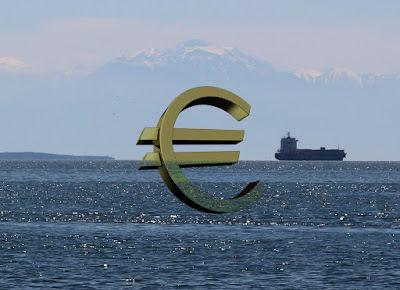Australian Central Bank raises benchmark rate
decided today to increase their policy rate from 3% to 3.25%. Since
the begining of the financial crisis, this is the first bank to make
such a move. They will likely be followed by other Central Banks,
although maybe with a significant delay. This decision is proof that
what used to be the biggest risk - deflation - is now beaten and we
can start looking forward. The massive monitary response (lowering of
interest rates, quantitative easing and stimulus packages) has worked
but we now need to start looking at how to manage the adverse
consequences: a monetary policy too accomodating and huge debt. It
will be a fine and difficult tuning for central bankers to stop
monetary easing at or after there are clear signs of recovery and
impending inflation.
Some economists, like Paul Stiglitz beleive that we are not out of the
woods yet. They invoke the fact that:
- unemployement is big and rising, putting a drag to any potential
recovery.
- and most importantly that the recovery has been artificially created
by massive stimulus packages and monetary easing at an unprecedented
scale.
Hence, any reversal of either the stimulus or the easing could put the
World economy back to recession. However, I don't beleive this last
scenario to be the most likely because stimulus packages will continue
to spread through the eonomy this year and next, and unemployement has
always existed in past recession and never prevented any recovery.
It is nonetheless anyone's guess how the recovery will be. China
didn't prevent the World from entering recession and will therefore
probably not pull it back to growth. Not to mention that China, one
of the biggest exporting economy, will not become overnight an
importing economy... Only the USA can restart the World growth and the
relatively healthy state of their banks plays in it's favor. Still,
this will only happen if the Fed and other central banks don't reverse
their policy too early...


Comments
Post a Comment